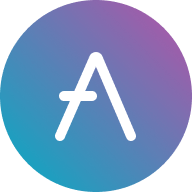Aave RWA Market: How Horizon is Transforming Institutional DeFi with Tokenized Assets
Introduction to the Aave RWA Market and Horizon
The Aave RWA market is at the forefront of innovation in decentralized finance (DeFi), introducing Horizon, a transformative platform that bridges traditional finance (TradFi) with DeFi. By enabling institutional investors to borrow stablecoins using tokenized real-world assets (RWAs) as collateral, Horizon is setting new benchmarks for compliance, transparency, and liquidity. This article delves into how Horizon operates, its standout features, and its potential to reshape the financial landscape.
What Are Real-World Assets (RWAs) and Why Are They Important?
Real-world assets (RWAs) are tangible or financial assets, such as U.S. Treasuries, corporate bonds, and money market funds (MMFs), that are tokenized and represented on blockchain networks. Tokenization enables fractional ownership, 24/7 trading, and enhanced liquidity, making these assets more accessible and efficient.
The integration of RWAs into DeFi is often referred to as a “trillion-dollar unlock” because it provides institutions with access to safe-yield assets while leveraging blockchain’s transparency and efficiency. This innovation addresses key challenges in DeFi, such as compliance, risk management, and regulatory requirements, making the ecosystem more attractive to institutional players.
How Horizon Operates: A Dual-Layer Structure
Horizon is built on a permissioned version of the Aave V3 protocol, ensuring it meets the compliance needs of institutional investors while maintaining permissionless stablecoin liquidity pools for broader DeFi participation. This dual-layer structure is a groundbreaking innovation, balancing the stringent requirements of TradFi with the open, decentralized nature of DeFi.
Permissioned RWA Collateral Pools
Horizon’s permissioned pools are tailored for institutional investors, allowing them to use tokenized RWAs as collateral. Supported assets include:
U.S. Treasuries
Corporate Bonds
Money Market Funds (MMFs)
These low-risk financial instruments provide a stable and secure foundation for borrowing activities, ensuring trust and reliability for institutional participants.
Permissionless Stablecoin Liquidity Pools
In contrast, Horizon’s stablecoin liquidity pools are open to the broader DeFi community. This inclusivity fosters liquidity and participation across the ecosystem, enabling retail and institutional users to engage in lending and borrowing activities seamlessly.
Key Features of Horizon
Real-Time Valuations with Chainlink’s SmartData Infrastructure
Horizon integrates Chainlink’s SmartData infrastructure, including NAVLink, to deliver real-time, tamper-proof net asset valuations for tokenized funds. This ensures accurate collateralization and builds trust among institutional participants by providing transparent and reliable data.
Institutional-Grade Compliance
Horizon addresses critical compliance and regulatory challenges, making it easier for institutions to adopt DeFi. By operating on a permissioned protocol, Horizon ensures adherence to legal and financial standards without compromising the core principles of decentralization.
Strategic Partnerships with Leading TradFi Players
Horizon has established partnerships with major TradFi players, including Centrifuge, Circle, VanEck, WisdomTree, and Ripple. These collaborations bring tokenized assets like JAAA, USYC, and USTB into the DeFi ecosystem, enhancing Horizon’s credibility and utility.
The Growing RWA Market and Its Impact on DeFi
The RWA market is experiencing exponential growth, with tokenized assets currently valued at $26–28 billion and projected to reach trillions in the coming years. This growth highlights the immense potential of platforms like Horizon to drive institutional adoption of DeFi.
By integrating RWAs, Horizon not only expands the scope of DeFi but also creates new revenue streams for the Aave DAO. Additionally, it increases the utility of Aave’s native stablecoin, GHO, which plays a pivotal role in the platform’s operations.
Early Adoption Metrics and Market Traction
Horizon has already demonstrated significant traction. Within its first 24 hours of launch, the platform recorded tens of millions in deposits and over $5 million borrowed against RWA collateral. These early metrics underscore the strong demand for institutional-grade DeFi solutions and validate Horizon’s value proposition.
Challenges and Future Potential
While Horizon represents a major leap forward, integrating RWAs into DeFi is not without challenges. Key hurdles include:
Regulatory uncertainties: Navigating evolving global regulations.
Market volatility: Managing risks associated with fluctuating asset values.
Robust risk management: Ensuring the security and stability of the ecosystem.
Despite these challenges, the long-term potential of tokenized assets in DeFi lending markets is undeniable. By bridging TradFi and DeFi, Horizon is paving the way for a more inclusive, efficient, and transparent financial ecosystem.
Conclusion
The Aave RWA market, powered by Horizon, is revolutionizing institutional DeFi by enabling the use of tokenized real-world assets as collateral. With its dual-layer structure, real-time valuations, and strong TradFi partnerships, Horizon is well-positioned to drive the next wave of DeFi adoption. As the RWA market continues to grow, platforms like Horizon will play a pivotal role in unlocking new opportunities for both institutional and retail participants.

